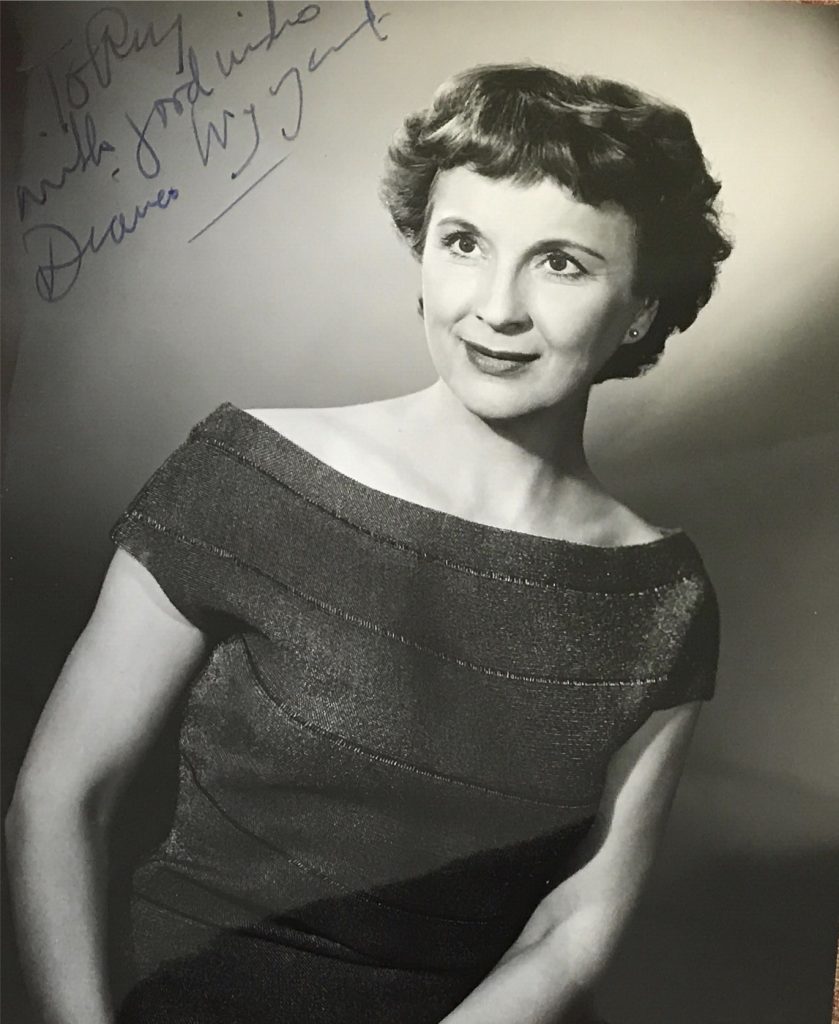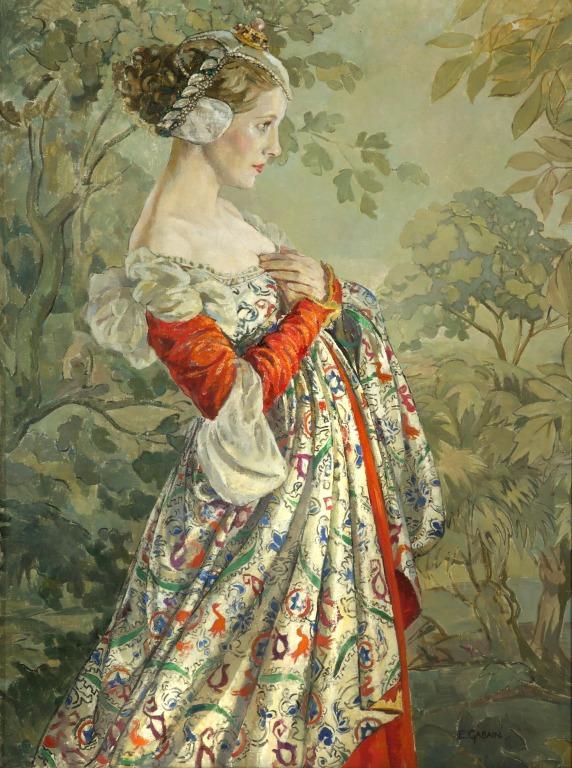
Had she wanted it, Diana Wynyard might have had a screen career as long and distinguished as that of Davis or Hepburn. As a stage actress she was excellent but seldom outstanding, nor was her later screen work likely to make anybody’s eyes pop out.
But her early film work is quite, quite stunning. Quiet, cool, gracious, ladylike, she was warmer and more believable than those adjectives imply: either her acting has not dated an iota or it was years before it’s time.
In “Rasputin and the Empress” the Barrymores are acting away like mad and about as convincing as a tree-full of parrots, but Wynyard simply exists ion the same way that someone like Spencer Tracy existed.
In “One More River” the cast are expectedly more subdued, the film is still Galsworthy junk but when Wynyard is on screen at any point, you might be watching a film made yesterday” – David Shipman in “The Great Movie Stars” (1970)
Diana Wynyard was born in London in 1906. She had a cool calm presence on film and was seen to best effect in the UK made “Gaslight”, and “An Ideal Husband”.
In the earlier part of her career she made films in Hollywood including “Rasputin and the Empress” and “Cavalcade” by Noel Coward. Diana Wynyard had a flourishing stage career and was in rehersal for a new play with Maggie Smith when she died suddenly in 1964. An article reviewing Diana Wynyard and her role in “Cavalcade” can be found here.
TCM Overview:
A luminous and intelligent British actress, Diana Wynyard brought genteel grace and an aristocratic dignity to a highly successful stage career. With a carriage and mien well-suited to period drama, she briefly made her mark in several classy roles in Hollywood during the depths of the Depression in the 1930s. Her US film stardom didn’t take, however, but she was sporadically active in British film for 20 years thereafter, leaving behind several outstanding performances that made one wish she had done more in film
IMDB Overview:
One of the outstanding stage actresses of her time, Diana Wynyard will always be remembered for her unforgettable performance in the British version of the thriller Gaslight (1940) (re-made in Hollywood in 1944 with Ingrid Bergman). Starring opposite the great Anton Walbrook, she played the part of terrorized Bella Mallen (driven to the point of insanity by her evil husband) with an ethereal, haunted fragility. Diana Wynyard was educated at the Woodford School in Croydon and first appeared on the stage in London in 1925, debuting in ‘Sorry, You’ve been Troubled’ as Lady Sheridan. She soon became one of the great stars of the British theatre with a wide-ranging repertoire, which included Shakespeare, Chekhov and Shaw. In 1937, she played Eliza Doolittle in ‘Pygmalion’.
In 1932, she was signed to a contract at MGM and was cast opposite the three Barrymores in Rasputin and the Empress (1932). However, her best performance was with Clive Brook in Noël Coward’s Cavalcade (1933), for which she received an Academy Award nomination. The New York Times (June 6, 1933) remarked, “Miss Wynyard is excellent as Jane Marryot. She portrays her role with such sympathy and feeling that one scarcely thinks of her as an actress”. Another review of Diana Wynyard, this time for One More River (1934), described her acting as ‘stirringly sincere’. Her Hollywood career lasted only two years before the actress returned to England. She gave other sensitive performances in The Prime Minister (1941), with John Gielgud as Benjamin Disraeli, and Kipps (1941), with Michael Redgrave, both directed by Carol Reed. Her subsequent marriage to Reed lasted just four years. Diana Wynyard appeared in smaller supporting roles during the 1950s and, in keeping with her confession “I don’t really want to be a film star”, gradually returned to the Shakespearean stage. One of her last significant screen roles was as James Mason’s mother in Island in the Sun (1957).
On stage, she played Beatrice, first opposite Anthony Quayle and later John Gielgud, in ‘Much ado about nothing’ (Australian tour, 1949-50). Other parts included Katherine in ‘The Taming of the Shrew’ and Hermione in ‘The Winter’s Tale’. Diana was awarded a CBE in 1953 for her contribution to the theatre. She never stopped working and gave her final performance as Gertrude to Peter O’Toole’s Hamlet.


